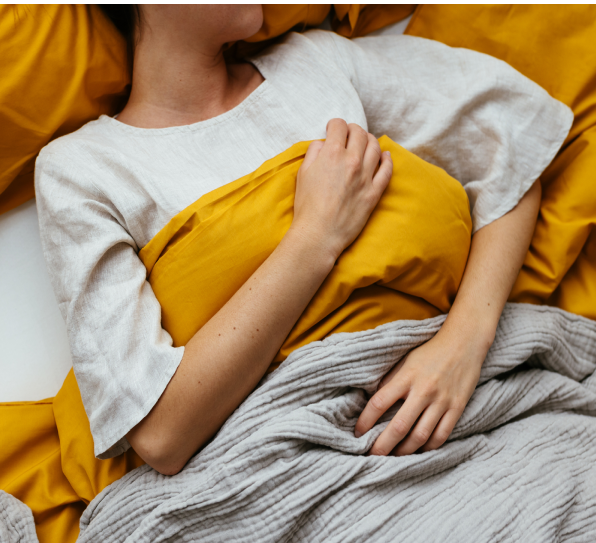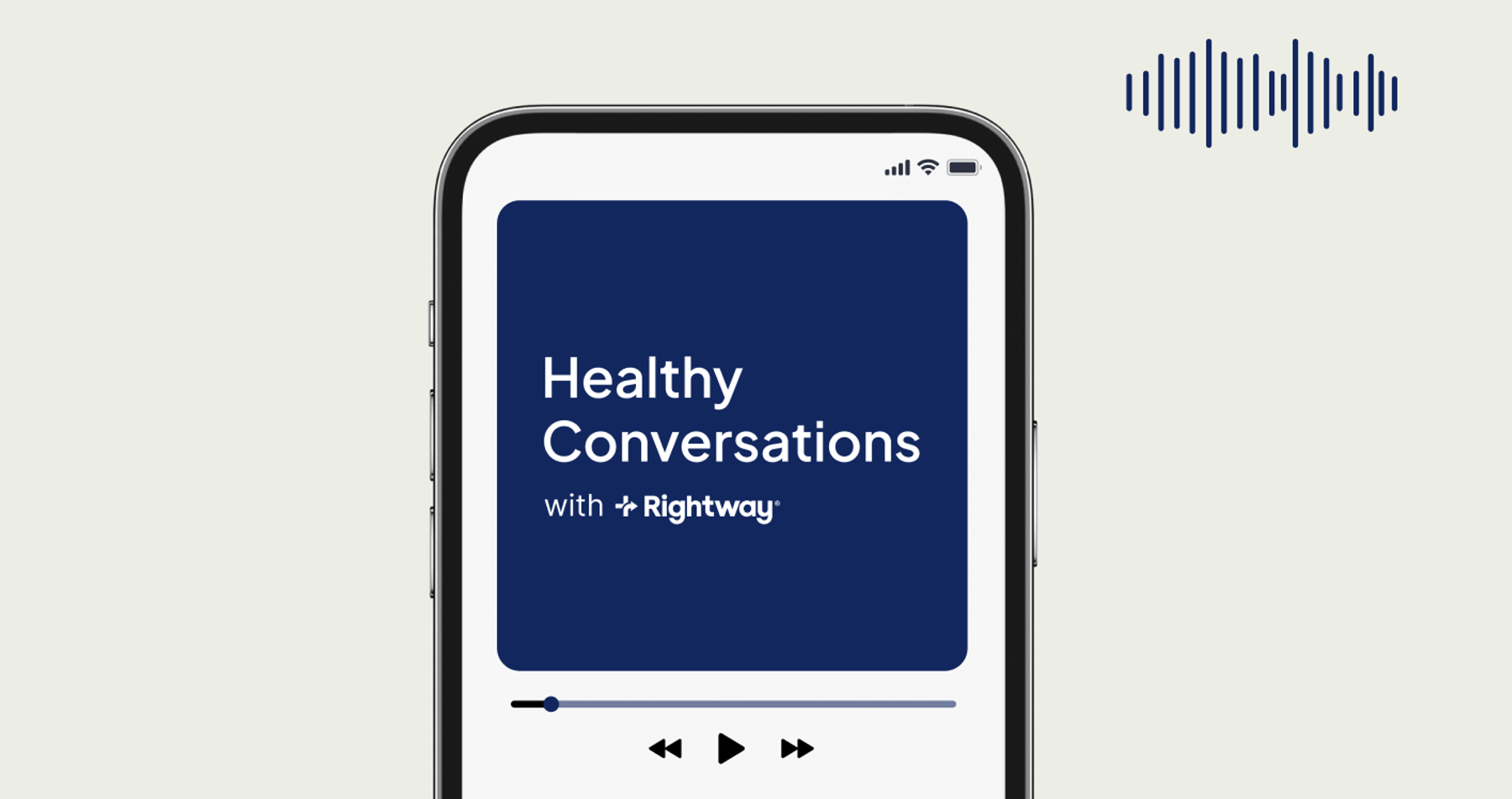12 tips to help supercharge your sleep.

Even if you’re getting enough hours of sleep, if your sleep is fragmented or disturbed, your risk of developing certain health conditions like heart disease and type 2 diabetes goes up.(2)
The good news is that there are many simple adjustments you can make to help you sleep better. We’ve pulled together our best tips for you below.
Benefits of restful sleep.
Before we dive into how to improve your sleep quality, it’s important to understand why this is key to good health. High-quality sleep can:
- Allow your muscles, organs, and cells to recover and restore energy.(3)
- Increase alertness, and in turn, promote safety: For instance, 20% of car accidents link back to fatigue from lack of sleep.(4,5)
- Help you maintain a healthy weight: One study showed that both the quantity and quality of sleep may be linked to healthy weight loss.(6)
- Support brain health, helping strengthen memories and remove waste chemicals that may be linked to Alzheimer’s.(7)
- Boost immunity by creating an environment where immune cells can grow and thrive.(8)
- Lower the likelihood of developing diabetes or obesity, especially in children.(9)
- Protect heart health: When you get enough, undisturbed sleep, your brain produces a chemical called hypocretin, which may ultimately prevent your arteries from hardening.(10)
Keep in mind, this isn’t a complete list of benefits. By optimizing your sleep, many areas of your health and well-being are likely to flourish. For example, since sleep can help with hormonal balance, hormones that raise stress levels or signal hunger in the body are less likely to spike.(11) In other words, you’re not likely to overeat, and your metabolism is less likely to slow down in response to stress.
How to sleep better at night naturally.
Now that you’re familiar with why quality rest is so important, let’s take a look at 12 ways you can start optimizing your sleep today.
1. Drink most of your water earlier in the day.
So that you don’t have to wake up in the middle of the night to use the bathroom, it’s helpful to limit your water intake around 2 hours before your bedtime.(12)
That said, depending on your health and unique circumstances, this may or may not work for you. But the general thought behind hydrating earlier in the day is to avoid disrupting your sleep at night. One study showed that waking up two times at night was associated with lower health-related quality of life.(13)
2. Elevate your legs before sleeping.
Although it’s more common to reduce swelling and inflammation, certain yoga poses, like raising your legs up against a wall, might potentially help you sleep better.(14) More evidence is needed to confirm its effects on sleep. But if you’re able to elevate your legs, doing so might relieve tension and promote relaxation.(15)
3. Take a hot bath or shower before bedtime.
You might have heard, especially when it comes to younger children, that a warm bath can help them sleep better. This is because hot water causes your blood vessels to expand and enables your body to release heat. The resulting drop in your body’s temperature helps you fall asleep. Studies show that taking a hot bath or shower around 2-3 hours before bedtime can help you fall asleep faster.(16)
4. Try aromatherapy.
Among other essential oils, lavender oil has long been used to help people who have difficulty falling and staying asleep. A small randomized-controlled trial (RCT) found that lavender oil significantly increased sleep quality and lowered stress in people with coronary artery disease.(17)
5. Limit your caffeine intake.
Research around caffeine has always been a mixed bag, with studies finding benefits as well as potential concerns: but evidence suggests that having caffeine 3 to 6 hours before bedtime noticeably disrupts sleep compared to having no caffeine.(18)
6. Give meditation a try.
An RCT on older adults showed that mindfulness meditation programs improved sleep quality more than sleep hygiene education.(19) Meditation can help you worry less, redirect your focus, and stabilize your mood. In turn, these short-term effects can translate to more restful sleep.
7. Take slow, controlled breaths.
If meditation doesn’t work for you, that’s okay. Simply taking deep breaths is enough to focus your attention on your breath instead of on intrusive or unhelpful thoughts. One RCT found that just 15 minutes of slow-paced breathing(6 inhalation-exhalation cycles per minute) can improve sleep quality.(20)
This is because longer exhalations activate the vagus nerve and parasympathetic nervous system, or the part of the body that promotes rest.
8. If you take naps, limit them to 30 minutes or less.
While a nap as short as 10 minutes can make you more alert and productive, naps longer than 30 minutes can interfere with your sleep routine and even lead to long-term health issues.(21)
Understandably, naps tend to be a way for us to make up for lack of sleep. But taking steps to limit them may help you fall asleep faster and stay asleep at night.
9. Set your bedroom temperature to 65 to 67 degrees.
Setting the temperature in your room between 65 and 67 degrees can help prevent you from waking up at night.(22) Some medical experts suggest anywhere from 60 to 67 degrees, because certain temperatures help your body remain in slow-wave sleep, which promotes restorative processes in the body.(23) If it’s too hot or cold, you’re bound to wake up, which can disrupt your sleep cycle.
If this sounds colder than your preferred temperature, you can also try using a weighted blanket or heavier comforter. Curtains that block sunlight will also help you stay asleep.
10. Avoid eating right before bedtime.
In addition to what you eat, when you eat can affect how well you sleep at night. So in addition to eating lighter, vegetable-focused meals, making sure you’re leaving enough time before bed can help your body take the time it needs to digest. Not only is eating earlier linked to an overall lower calorie intake, but also better for sleep quality.(24)
11. Limit or avoid alcohol and smoking.
Although having a drink after work is a common way to unwind, alcohol can interfere with healthy sleep patterns. In fact, having alcohol or nicotine within 4 hours of bedtime may be more disruptive to sleep than caffeine.(25)
As you may know, the long-term effects of alcohol and cigarette smoking extend beyond affecting sleep.(26,27) So if you do drink or smoke, keeping these activities to a minimum can also help promote overall well-being.
12. Avoid screen time before bed.
You may have heard of revenge bedtime procrastination, or staying up late in order to make up for time spent on work and/or other activities.(28) But as you may know, laptops, phones, TVs, and other devices emit blue light. While blue light may help alertness and focus during the day, after sundown, it may lead to disturbed sleep.
What to do if you’re still not sleeping well.
If you’ve tried upgrading your sleep hygiene and haven’t noticed any improvement, your best bet is to talk with a healthcare provider. They can help you rule out other sleep disorders, like insomnia or obstructive sleep apnea, that may be preventing you from getting your best sleep.
And don’t forget: You can call or chat with a health guide through the Rightway app. From going over your symptoms together to connecting you with the right healthcare specialist and more, we’ll make sure you get the care you need to sleep better.
Download the Rightway app and connect with a health guide today if you have any questions or need support.
Sources:
1, 22 American Psychological Association. (2021). Growing concerns about sleep.
2 Meyer, N., et al. (2022). Circadian rhythms and disorders of the timing of sleep. Sleep and sleep disorders.
3 Institute of Medicine (US) Committee on Sleep Medicine and Research: Colten, H. R., Altevogt, B. M. (Ed.). (2006). Sleep Disorders and Sleep Deprivation: An Unmet Public Health Problem. 3, Extent and Health Consequences of Chronic Sleep Loss and Sleep Disorders. National Academies Press.
4 The Lancet. (2022). Waking up to the importance of sleep.
5 Centers for Disease Control and Prevention. (2010). Short sleep duration among workers — United States.
6 Thomson, C. A., et al. (2012). Relationship between sleep quality and quantity and weight loss in women participating in a weight-loss intervention trial. Obesity (Silver Spring).
7 Yale School of Medicine. (2022). Sleep’s curcial role in perserving memory.
8 National Heart, Lung, and Blood Institute. (2022). NIH-funded study shows sound sleep supports immune function.
9 National Heart, Lung, and Blood Institute. (2021). Study finds link between sleep habits and weight gain in newborns.
10 National Heart, Lung, and Blood Institute. (2019). Study helps solve mystery of how sleep protects against heart disease.
11 Harvard Medical School: Get Sleep. (n.d.). Sleep and health.
12 Cleveland Clinic. (2022). Is it healthy to drink water before bed?.
13 O Tikkinen. (2010). Nocturia frequency, bother, and quality of life: How often is too often? A population-based study. European urology.
14 Wei, M. (2020). Yoga for better sleep. Harvard Health Publishing.
15 Chen, Y., et al. (2020). Posture and time arrangement influence shank circumference reduction when performing leg raising exercise. International Journal of Environmental Research and Public Health.
16 Tai, Y., et al. (2021). Hot-water bathing before bedtime and shorter sleep onset latency are accompanied by a higher distal-proximal skin temperature gradient in older adults. Journal of Clinical Sleep Medicine.
17 Karadag, E., et al. (2015). Effects of aromatherapy on sleep quality and anxiety of patients. Nursing Critical Care.
18 Drake, C., et al. (2013). Caffeine effects on sleep taken 0, 3, or 6 hours before going to bed. Journal of Clinical Sleep Medicine.
19 Black, D. S., et al. (2015). Mindfulness meditation and improvement in sleep quality and daytime impairment among older adults with sleep disturbances. JAMA Internal Medicine.
20 Laborde, S., et al. (2019). Influence of a 30-day slow-paced breathing intervention compared to social media use on subjective sleep quality and cardiac vagal activity. Journal of Clinical Medicine.
21 Dhand, R., et al. (2006). Good sleep, bad sleep! The role of daytime naps in healthy adults. Current Opinion in Pulmonary Medicine.
23 Cleveland Clinic. (2021). What’s the best temperature for sleep?.
24 Rogers, M., et al. (2021). Meal timing, sleep, and cardiometabolic outcomes. Current Opinion in Endocrine and Metabolic Research.
25 Spadola, C. E., et al. (2019). Evening intake of alcohol, caffeine, and nicotine: night-to-night associations with sleep duration and continuity among African Americans in the Jackson Heart Sleep Study. Sleep Research Society.
26 Centers for Disease Control and Prevention. (2022). Alcohol Use and Your Health.
27 Centers for Disease Control and Prevention. (2021). Health Effects of Cigarette Smoking.
28 National Public Radio. (2022). Stop doomscrolling and get ready for bed. Here’s how to reclaim a good night’s sleep.







